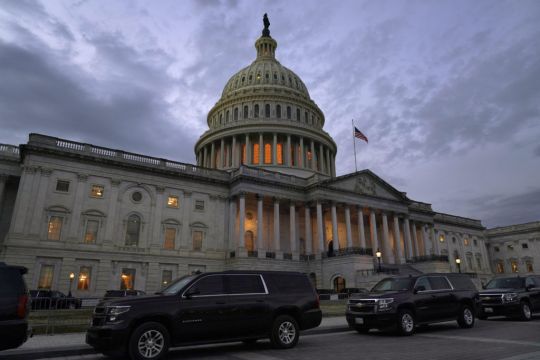The US Congress has passed a 900 billion dollar (£670 billion) relief package to deliver long-sought cash to businesses and individuals and resources to vaccinate a nation confronting a frightening surge in Covid-19 cases and deaths.
The relief package, unveiled on Monday afternoon, sped through the House and Senate in a matter of hours.
The Senate cleared the massive package by a 92-6 vote after the House approved the Covid-19 package by another lopsided vote, 359-53.
The tallies were a bipartisan coda to months of partisanship as politicians wrangled over the relief question, a logjam that broke after President-elect Joe Biden urged his party to accept a compromise with top Republicans that is smaller than many Democrats would have liked.
I applaud this relief package, but our work is far from over. Starting in the new year, Congress will need to immediately get to work on support for our COVID-19 plan.
My message to everyone out there struggling right now: help is on the way. https://t.co/ktET5loEnmAdvertisement— Joe Biden (@JoeBiden) December 22, 2020
The bill, which also covers 1.4 trillion dollars (£1.05 trillion) to fund other government operations, goes to US President Donald Trump for his signature, which is expected in the coming days.
It combines coronavirus-fighting funds with financial relief for individuals and businesses, and would establish a temporary 300 dollar (£225) per week supplemental jobless benefit and a 600 dollar (£450) direct stimulus payment to most Americans.
Also included are a new round of subsidies for hard-hit businesses, restaurants, and theatres and money for schools, health care providers and renters facing eviction.
The 5,593-page legislation – by far the longest bill ever – came together on Sunday after months of battling, posturing and postelection negotiating that reined in a number of Democratic demands as the end of the congressional session approached.
Mr Biden was eager for a deal to deliver long-awaited help to suffering people and a boost to the economy, even though it was less than half the size that Democrats wanted in the autumn.







